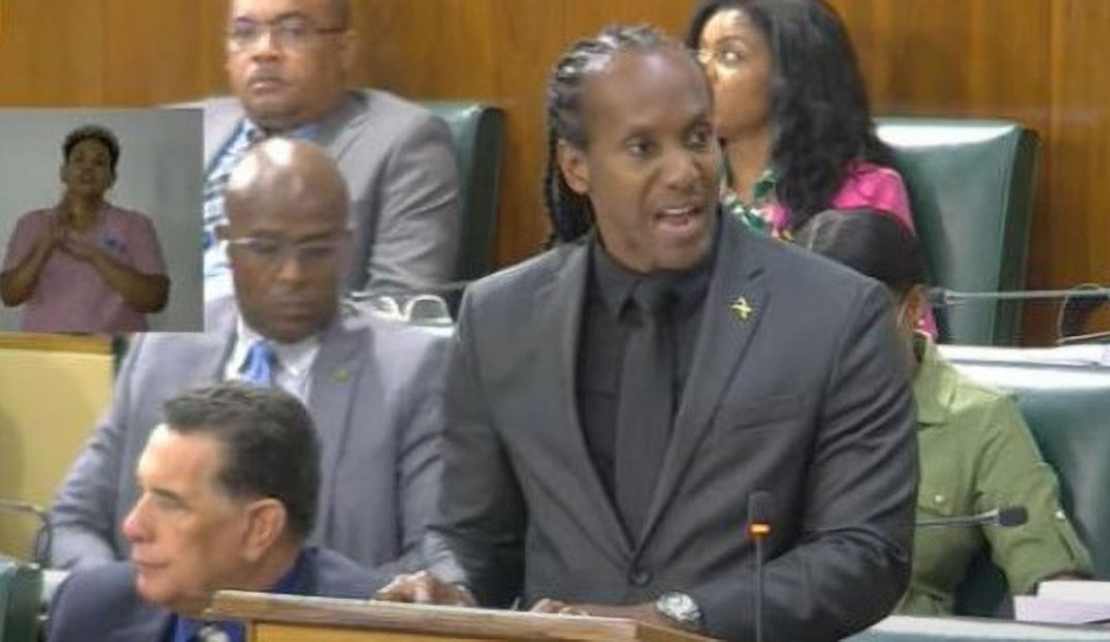JAMAICA'S Parliament again calls for lifting of US economic embargo on Cuba

MONTEGO BAY, October 27, 2023 - In a bipartisan show of solidarity with the Cuban people, the Jamaica House of Representatives last week passed a resolution in support of lifting the longstanding United States economic embargo on Cuba.
This decisive action by Jamaica echoes the global sentiment shared by the United Nations General Assembly, which has consistently condemned the embargo for over eighteen years.
Minister of State for Foreign Affairs & Foreign Trade Alando Terrelonge, spearheading the debate, described the embargo as a policy with cruel and widespread repercussions.
The embargo, a relic of the Cold War instituted by President John F. Kennedy in 1962 following the Bay of Pigs invasion, has seen various shifts in intensity over the decades.
Notably, in 2016, President Barack Obama took significant steps to mitigate its harshest impacts during a historic visit to Cuba.
However, this thawing in relations saw a reversal under the Trump administration, a decision that has been upheld by President Joe Biden, drawing strong criticism from figures such as former Foreign Affairs Minister Anthony Hylton of the Parliamentary Opposition.
The following is the full text of the resolution passed by the House.
RESOLUTION OF THE JAMAICA HOUSE OF REPRESENTATIVES IN SUPPORT OF CUBA
WHEREAS this Honourable House has on several occasions approved a motion in support of Cuba’s resolution submitted in the United Nations (UN) General Assembly entitled “Necessity of ending the economic, commercial and financial embargo imposed by the United States of America against Cuba”;
AND WHEREAS the sixty-one-year-old policy of economic blockade remains in place, despite the fact that one hundred and eighty-five (185) Member States of the United Nations, including Jamaica, representing the vast majority of the international community, voted last year in favour of the resolution;
AND WHEREAS there are no formal and normal banking relations between Cuba and the United States, with implications for relations with the international banking system;
AND WHEREAS the restrictions on Cuba’s international financial transactions, including those with multilateral organisations for cooperation with the island, have intensified with the implementation of the blockade policy;
AND WHEREAS, despite the re-establishment of diplomatic relations in 2015, tourism from the United States to Cuba effectively remains illegal, with limited flights to only the capital city, Havana, and hotels remain off limits under United States restrictions on patronising companies linked to Cuba’s military or security services;
AND WHEREAS the United States Government tightened the blockade against Cuba with amendments to the Cuban Assets Control Regulations (CACR) to impose increased restrictions on travel, the processing of remittances and hotel accommodation properties in 2019 and 2020;
AND WHEREAS Cuba remains on the United States’ list of state sponsors of terrorism, which has grave implications on how third states engage with Cuba on developmental aid, trade, international cooperation on transnational organised crime and technical assistance;
AND WHEREAS it is welcomed that the United States Government has announced plans to remove the limit on family remittances, to authorise remittances to non-family members sent to Cuba, to increase flights to Havana and extend flights to other cities, to allow American groups to visit on educational trips, and to re-launch the Cuban Family Reunification Parole Programme (CFRP);
AND WHEREAS the limited ease of restrictions does not change the existing blockade, which, in its essence and its aims, constitutes an act of unilateral aggression and represents a transgression of the right to peace, development, and security of a sovereign state as well as a permanent threat to the stability of a Member State of the United Nations;
AND WHEREAS the blockade represents a violation of international law and is contrary to the purpose and principles of the United Nations Charter and to the norms governing international trade and freedom of navigation;
AND WHEREAS international humanitarian law prohibits any embargo on raw materials for food and medicine, even in war time, and Cuba continues to be unable to trade even food and medicine with subsidiaries of United States companies in third party countries;
AND WHEREAS the United States has broadened the “Restricted List of Cuban Entities and Sub-Entities” that are the object of additional tax sanctions due to blockade regulations;
AND WHEREAS the continuation of the blockade during the pandemic has worsened the impact of the embargo, in particular with efforts to procure vaccines and material for producing its own vaccines which are the best way to recover from the COVID-19 pandemic;
AND WHEREAS the economic, commercial and financial blockade constitutes the principal obstacle for the development of the Cuban economy, and hinders the implementation of the country’s National Plan for Economic and Social Development as well as the United Nations’ Agenda 2030 and its Sustainable Development Goals;
AND WHEREAS Jamaica’s national interests are concerned with the impact of the continuation of the blockade and the extraterritorial application of United States laws regulating transactions between Jamaica and Cuba, directly and indirectly;
AND WHEREAS governments, committed to the norms of the multilateral trading system, to the freedom of trade and navigation, to the principles of the Charter of the United Nations, to international law and to the rejection of extraterritorial application of a national law, voted again on Thursday, 3rd November 2022 in favour of the resolution at the United Nations General Assembly:
BE IT RESOLVED that this Honourable House express itself on the morality, legality and desirability of this decades-old blockade against Cuba, and call for renewed dialogue between the United States and Cuba and for the lifting of the United States embargo against Cuba.
